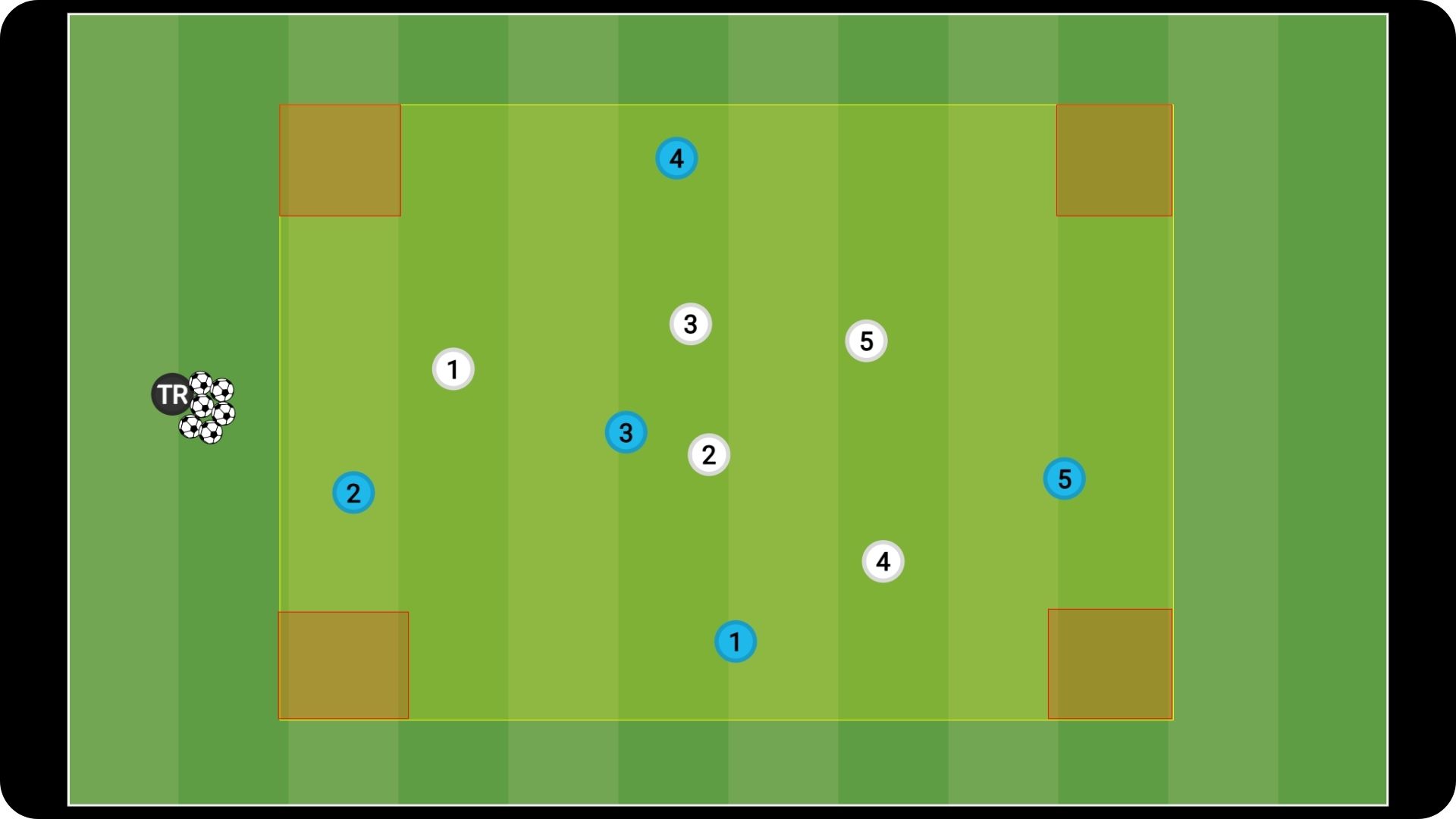Hello and a warm welcome to the latest edition of our newsletter! In this issue, we’re focusing on the following topics:
⚽When your game idea collides with reality
👉2 new drills for you!
⚽When your game idea collides with reality
How important is it for a coach to develop a clear game model?
It’s absolutely fundamental. First and foremost, it gives you your own framework and point of reference. It’s about ideals that you don’t necessarily have to reach in every training session or match. Just like a captain uses the stars for navigation – knowing he’ll never actually reach them – a coach has his game idea. Both use these reference points to help them stay on course and achieve their goals.

Can it become a problem if the club prescribes a different playing philosophy? How do you deal with that situation?
In principle, it’s not a problem at all. It’s the club’s right – and actually one of its strengths – to define its own guidelines. As a coach, you have to ask yourself before you take the job whether you can buy into that philosophy, whether it overlaps with your own or whether you can make it your own. If that’s the case, you can walk the same path together.
But if your views on football are completely different, then it simply doesn’t “match” between club and coach.

Which factors limit the implementation of your own game idea?
First of all: the squad. Of course you can develop players, but what really counts at the beginning is the current level – and that can be a limiting factor. On top of that comes the mental state of the players. After a long losing streak, for example, you’ll have to make adjustments.
It’s crucial that your playing philosophy is dynamic so you can constantly react to situations. The most important thing for a coach is to keep adapting it and responding to what is happening right now.

Is a playing philosophy ever finished?
It should never be finished. Alongside football itself, you are constantly developing as a person, gaining new experiences and dealing with a good amount of trial and error. You try things, find out what works and what doesn’t, analyse the reasons and then feed those lessons back into your game model.
You also need a constant flow of new input and inspiration, to keep evolving and, in a way, reinventing yourself again and again. That’s easier to do during a break between jobs, of course, but even while you’re in charge of a team you shouldn’t close yourself off to it. You can also get valuable input from other teams at your club – both younger and older age groups. Opportunities are always there; you just have to use them.
A philosophy is something very individual and subjective. Does that mean a coach will regularly encounter resistance?
Every coach feels friction with their ideas more or less every week. Not every player in the squad is 100% convinced about implementing everything exactly as the coach wants it. Everyone has their own way of playing football. What matters is finding a shared understanding for working together.
The same is true in the interaction with club officials (president, board), with sporting directors (CEO Sport, sporting director, head of football), with the board, the staff, the media and the fans. Through all of this, it’s important to stay true to your own line while still allowing other opinions in – and then deciding what is currently the best way to be successful.

When is a playing philosophy complete?
In reality, there is no real end point to developing your own playing philosophy. The team – or rather, the individual players – set the tempo. They determine which processes need to be kicked off again and what needs to be further developed in the playing idea. Based on the experiences from matches and training, you can ask yourself: Do I need to change something? Is the team ready to change something? And what is the next step within our overall concept?
Sometimes the players already give you hints in training or in games. They provide clues by introducing new variations or tweaks to the system or the way they interpret the game – through creativity and their own interpretation of their role and position. As a coach, you have to recognise this. Then you can take the next step.
You can also draw inspiration from opposition analysis or from trends in national and international football – picking out aspects that might fit your own game model.
During the training process in general, in pre-season or winter break, but also during international breaks, you can integrate such processes and develop the repertoire of your playing idea. However, it’s vital to communicate everything clearly. The players must not be overloaded. Too much information can be confusing. Everything has to be simple, logical and executable in the chaos and tempo of a match.
👉2 new drills for you!
2 new drills are online. With a monthly or yearly subscription you get unlimited access to all current and future videos.
Curious but not a subscriber yet?
No problem – you can test the platform for free for 1 month!
Just send me a short email with the subject line “OK” and I’ll send you your voucher code for one free month.
Have fun testing and coaching!
Drills:
Check out our Homepage for exclusive training videos and products.
Was this post forwarded to you? Subscribe here.
Have an idea or feedback to share? [email protected]



